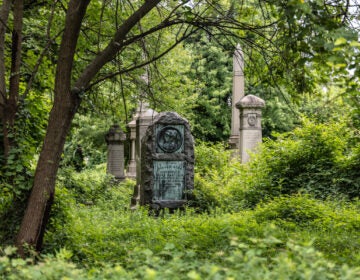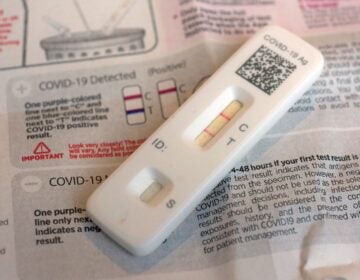Philadelphia City Controller says AVI could cause exodus to suburbs
“What does it take to create panic?” For City Controller of Philadelphia, Alan Butkovitz, that ominous question is at the heart of what he feels is the most important issue involving the Actual Value Initiative (AVI) – how much will residential property owners see their real estate taxes increase and will they be able and willing to shoulder that burden.
The Chestnut Hill Community Association (CHCA) invited Butkovitz to speak on the subjects of AVI and real estate taxes at its Board of Directors meeting Thursday evening. Butkovitz has been a staunch opponent to AVI and is also rumored to be a possible Philadelphia mayoral candidate in 2015.
Exodus?
Butkovitz said the life and vibrancy of the entire city are at stake. The consequences of implementing AVI could far outweigh any potential benefit. “Does it create a vacuum for mass exodus from Chestnut Hill to suburban neighborhoods?” queried Butkovitz.
Many in attendance were quick in their response, “Yes!”
The city of Philadelphia has not finished assessing properties and when completed the millage rate will determine whether your property taxes will go up or down.
Butkovtiz distributed a chart (pdf) which explicitly detailed the effect on property taxes at some of the various proposed AVI millages (1 percent, 1.2 percent and 1.8 percent) on a sample of homes purchased in Chestnut Hill during 2012.
Different scenarios laid out
The AVI rates were matched up against current property taxes. For all but one home listed, the real estate taxes decreased under the 1 percent millage.
Under 1.2 percent millage, most still see a decrease.
However, if the proposed 1.8 percent rate were to be approved, all but one property listed would see significant increases – most more than 30 percent – in real estate taxes.
Translated into dollars
The home which saw an increase in tax even at the lowest millage was the second lowest priced property. At 1 percent millage, the increase was only nominal – $34 or 2 percent. At 1.2 percent, that increase shot up to $423 or 22 percent, and at 1.8 percent millage that same property would see a real estate tax increase of 83 percent.
Butkovitz included in his handout a side by side comparison of real estate taxes at the same varying millages in suburban areas such as Flourtown, Jenkintown, Whitpain and Lower Merion. (pdf)
Butkovitz opposes implementation of AVI
The idea behind AVI is to reform the current property taxes so that all city property is fairly assessed at 100 percent of its market rate. Butkovitz, who has been City Controller since 2005, has been opposed to the measure from the outset. He calls AVI a “myopic” approach. He explained that in the pursuit of tax fairness a number of people are going to be “severely hurt.”
The tax burden will be felt most in recently gentrified neighborhoods such as Kensington, Pennsport and Point Breeze. Many long-time residents in these traditionally lower income areas do not qualify for the 10 year real estate tax abatement, yet will see the market value on their home increase as a result of new development. Tax abatements work, posited Butkovitz, “But what happens when you do the opposite?”
Butkovitz said AVI could also impact whether people will be able to obtain mortgages for homes in these neighborhoods.
Since Chestnut Hill is not a neighborhood experiencing gentrification, it is not going to suffer the doubling and tripling of property taxes that are expected to occur for some once AVI is in effect.
What about exemptions?
Exemptions are a considerable hinderance to tax fairness. Non-profit organizations account for 25 percent of real estate holdings in Philadelphia and are tax exempt. A proposed homestead exemption would mitigate up to $30,000 of the assessed property values for home owners, but Butkovitz said such exemptions create another problem of having to recoup the revenue loss. The fix, he explained, is to pass the burden on to property owners who do not have exemptions.
Butkovitz cautioned that the city has been making its tax policy on an ad hoc basis to foster economic development. In the 1980s, he said, commercial properties were levied at a higher tax rate than residential properties. That was done away with some 30 years ago and the city now has a narrow set of tools available. Butkovitz stated the objective of AVI is not only to level taxes, but to generate more revenue for the city. “AVI is already law,” he warned. How it will eventually be put in practice comes down to who has power and whose vision gets imposed.
Storm the castle
As far as solutions, Butkovitz only shared the recommendation that concerned property owners “raise a lot of hell” with City Council and marshall support to keep the millage at 1 percent or lower as the issue progresses.
Butkovitz stressed that City Council members are quite sensitive to public opposition and changes in tax structure are always politically wrenching. “Let them know people are paying attention,” he advised.
Chestnut Hill plans more speakers
CHCA president, Brien Tilley stated that the board recognizes AVI as a very serious matter. Hosting Butkovitz is the association’s first effort to bring a guest speaker to inform the community on the topic. Tilley noted that the CHCA board is working on bringing a panel of speakers to present more information on AVI to the public in the autumn. “This is the beginning,” he said.
WHYY is your source for fact-based, in-depth journalism and information. As a nonprofit organization, we rely on financial support from readers like you. Please give today.






